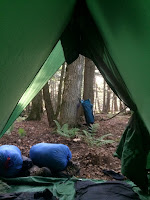 |
| The Sturdy Susans that grow on my Path to Joy |
If I tell you what my Saturday was like, you can
probably guess what Today will be like. Yesterday for the first time, I got up
early enough to go to the Master Gardeners' plant swap. The Extension puts it
on every year at Forest Preserve Park, and usually my friend, Gayle, goes and
brings me her extras. But for once, I got it into my calendar, and now I'll try
to go every year. I even got Michael to come with me by promising him biscuits
from town. My husband loves hot biscuits, which we never have at home, because
carbs.
I got up and miraculously remembered and went out in
my jammies to dig Nanny's peonies. Thirty years ago, I planted a short row of
peonies behind the asparagus bed from my grandmother's yard. They bloom in May,
generous blooms of deep burgundy, like pompons.
By now the flowers are long
gone. Peonies need to be divided occasionally, and about ten years ago I went
to Nancy's peony party in Indy. My friend was digging hers and we had a tiny
plant swap at her house. I dug one of my bushes at the east end of the bed to
trade for her light pink ones. I planted these in a line to border my flower
trail, the one I call my "Path to Joy," the one that has now become a
parade of Susans. At that time, I vowed to dig one plant every year to divide
and spread, and that way keep my rootstock healthy and my bushes blooming. The
next year I dug the second bush and used the new ones to lengthen my path. And
after that? Well, I never dug them again until this week.
 |
| Nanny's Peonies |
We arrived a little late (the swap starts at eight)
and found the picnic tables at the venerable brick pavilion full of plants. We
were assigned a number; the early birds get to choose first. I was number
eighteen. Signs showed us which tables were for plants that like the sun and
those that like the shade. There were also sections for garden tools and books.
Gayle was already there, and we wandered the aisles. Here were bags full of
Siberian Irises, those slender elegant flowers that I've hankered after since I
saw them at my cousin's house thirty years ago. These were apparently dug up
from Bryant Cottage in Bement, the historic meeting place where Lincoln and
Douglas planned their famous debate. I definitely wanted some of those flowers,
both elegant and historic.
 |
| Lucky Clover |
The hostess released us one by one according to the
numbers on our name tags. Meanwhile, she regaled us with garden-themed jokes and
riddles while we waited our turns. (Why is the Incredible Hulk a good gardener?
Gayle knew that one: He has a green thumb.) Even though my number was high, there
were plenty of the Siberian Irises and other plants when my turn came around.
After everyone had had a first pick, it was a free-for-all. We were told quite
sternly, that all the plants had to be taken away at the end of the morning. I
chose plants for my sunny paths and for Michael's shady woodland beds. He
helped me fill the trunk of the car. There was even a lecture—hints about how
to clean up your garden for fall.
Afterwards we went for our biscuits, and I mulled over
how much I like a community event like that. It was a regular stone soup of a
gathering. How did I dig just one peony bush, and come away with a carload of
plants? And everybody seemed to be satisfied with their haul. It just goes to
show that if we share our bounty with open hearted generosity, there will be
plenty for everybody.
 |
| Monarch Hotel |
Swap
in Beauty; Sow in Peace; Blessed Be











